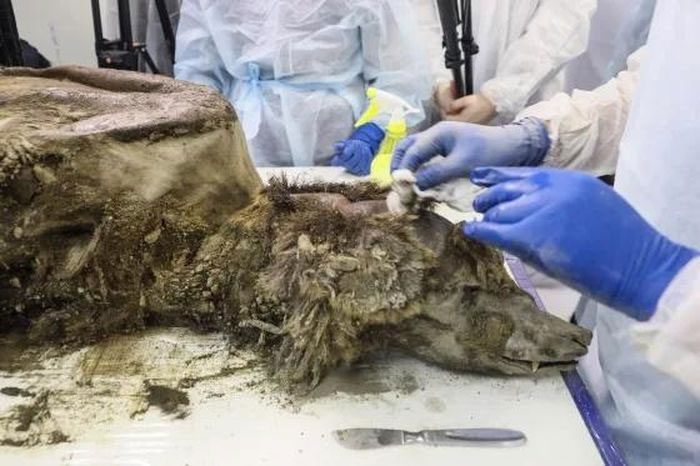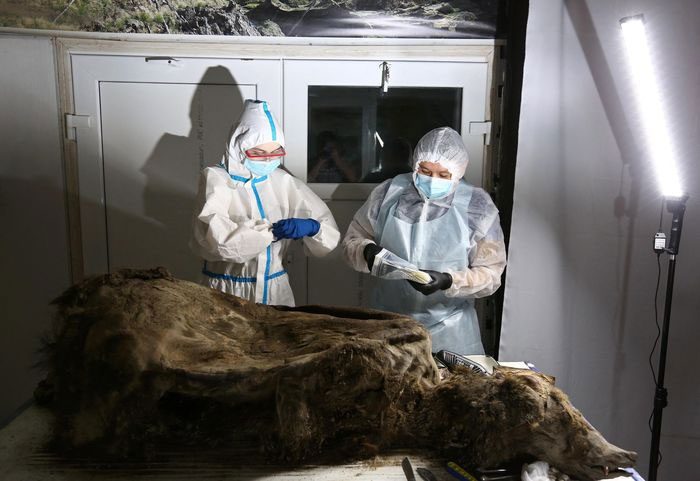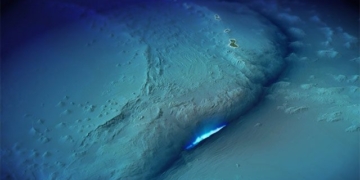Scientists have examined the nearly perfectly preserved remains of a brown bear that has been frozen in permafrost in eastern Siberia for almost 3,500 years.
“This is a completely unique discovery: the entire body of an ancient brown bear,” said Maxim Cheprasov, head of the Lazarev Mammoth Museum Laboratory at the Northeast Federal University in Yakutsk, eastern Siberia, as reported by Reuters on February 23.

A team of scientists had the opportunity to study the internal organs and examine the brain of the brown bear cub preserved almost perfectly in permafrost for 3,460 years in eastern Siberia. (Photo: TASS).
The female brown bear was discovered by reindeer herders in 2020. At that time, the animal’s remains were protruding from the permafrost on Bolshoy Lyakhovsky Island, part of the New Siberian Islands, located over 4,600 km east of Moscow.
Because it was found east of the Bolshoy Etherican River, the animal was named the Etherican brown bear.
The extremely cold temperatures helped preserve the soft tissues of the bear for 3,460 years, as well as the remains of its last meal – bird feathers and vegetation. The bear is estimated to have been 1.5 meters tall and weighed 78 kg.
Cheprasov stated: “For the first time, a specimen with such soft tissues has come into the hands of scientists, giving us the opportunity to study the internal organs and examine the brain.”

Scientists examine the remains of the brown bear preserved almost perfectly in permafrost for 3,460 years in eastern Siberia. (Photo: Reuters).
The team of scientists in Siberia cut through the bear’s tough skin, examined the brain, and the animal’s internal organs, conducting a series of studies on cells, microbiology, virology, and genetics.
They could clearly see the pink tissue and yellow fat of the bear while dissecting the ancient creature.
The researchers also sawed through its skull, using a vacuum to remove dust from the skull before extracting the brain.
“Genetic analysis has shown that this bear species is not genetically different from the modern bears found in northeastern Russia – Yakutia and Chukotka,” Cheprasov mentioned.
He added that the bear was likely around 2-3 years old and died due to spinal injuries.
However, it remains unclear how this bear ended up on the island, which is now separated from the mainland by a 50 km wide strait. It may have crossed the ice, swum over, or the island could have once been part of the mainland.
The Lyakhovsky Islands contain some of the richest paleontological treasures in the world, attracting both scientists and ivory traders in search of woolly mammoth remains.


















































